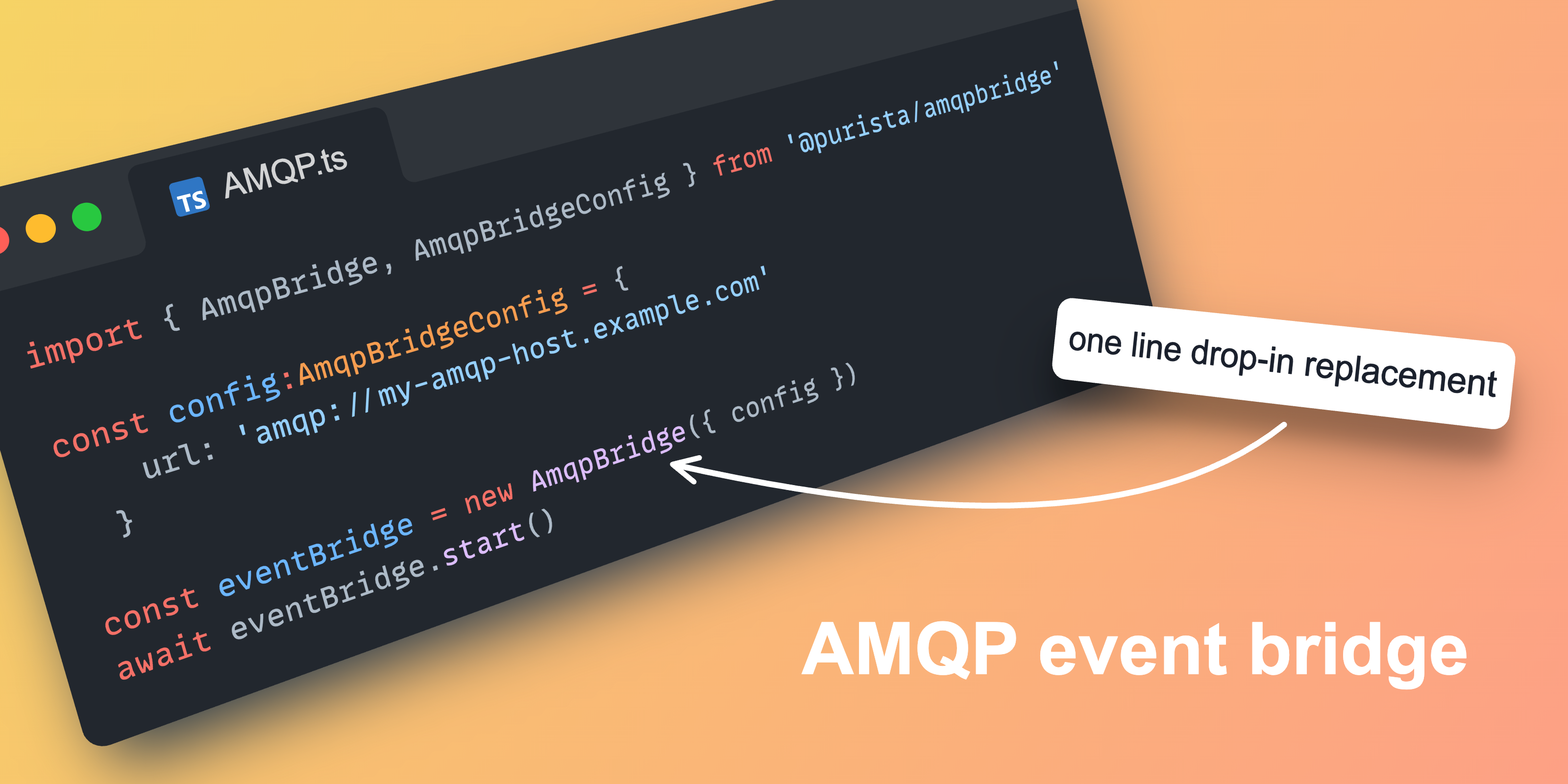
AMQP Event Bridge
The AMQP protocol and the corresponding brokers are perfectly for PURISTA.
The package @purista/amqpbridge provides an event bridge for the AMQP protocol. This means you can use RabbitMQ as message broker. This is the recommended message broker. Also, Apache ActiveMQ should work.
By using the AMQP event bridge, the system will scale and load balance any task across all instances. It also allows you, to choose a more flexible way of deployment, as you are now able to split your monolith into small pieces.
You can:
- spin up multiple monolith instances
- you can split your monolith by services and run multiple service instances (microservice style)
- you can split even more down to single function and subscription level
- you are able to connect other systems via the amqp broker
Pros
- allows scaling
- full subscription support
- support of durable queues
- retry mechanism
- dead letter queues
Cons
- needs managing of an AMQP broker
- no auto-reconnect
Configuration
The AMQP event bridge uses the unified configuration schema as all event bridges.
API documentation
Usage example
The easiest way to start - simply start a RabbitMQ docker container:
docker run --rm -it --hostname my-rabbit -p 15672:15672 -p 5672:5672 rabbitmq:3-managementAdd the AMQP bridge to your code:
import { AmqpBridge, AmqpBridgeConfig } from '@purista/amqpbridge'
// create and init our eventbridge
const config:AmqpBridgeConfig = {
url: 'amqp://my-amqp-host.example.com'
}
const eventBridge = new AmqpBridge( config )
await eventBridge.start()Brokers and tools
OpenTelemetry
PURISTA is using the AMQP header feature to add the OpenTelemetry information to each message, as recommended: https://w3c.github.io/trace-context-mqtt/.
